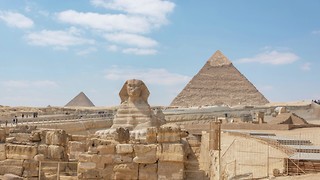Theatre: The Sunset Limited
Annie Forbes

A suicidal professor flings himself in front of a speeding train. At the last instant, he is snatched from the brink by an ex-con and born-again Evangelist, who brings him back to his dilapidated apartment. Cormac McCarthy’s “The Sunset Limited” charts the repercussions of this wildly unlikely meeting of minds - a conversational dalliance between a doggedly optimistic believer and an agnostic academic who insists that “Western civilisation went up in smoke in the chimneys of Dachau.” Over the familiar bastion of a kitchen table faith, suffering, and the nature of existence are hotly debated, with deeply unsettling results.
Aspects of this particular production are highly effective, whilst others leave much to be desired. Lit by a single bulb, the pared down setting is simultaneously minimalist and arresting, whilst the intimate space of the Corpus Playroom ensures that the audience cannot help but feel intensely involved with the moral battles taking place onstage. From the rumble of an approaching locomotive, to the slick scene changes in which the room is plunged into darkness, sound and lighting contribute to an immersive and urgent atmosphere.
Brilliant in its conceptual simplicity, the dialogic structure of the work naturally rests heavily on the shoulders of its two actors. There are times when they bear up admirably. David Matthews is well cast as the despairing yet magnificently egotistical professor. His performance is frequently nuanced, as he ricochets between blustering bouts of rage tempered by reticent fragility. At times he tends to venture too far off the emotional register, to the effect that his delivery loses its resonance and becomes farcical. James Dobbyn also does well to invest his character of the pious ex con who is more than first meets the eye, with an aspect of mischievous mystery. However the matronly manner with which he bustles around the set and affectations of dorky quirkiness render his tales of “jailhouse” brawls embarrassingly unconvincing.
It’s only towards the close that this production really gets off the ground in terms of acting, and we gain a sense of its true potential. Dobbyn’s caricature of a drunken acquaintance is laugh-out-loud funny, whilst his creeping sense of doubt in his own faith reveals an emotional range that was hitherto absent. Matthews also comes into his own, delivering a climactic scene which is powerfully compelling.
Sadly, as a whole, these glimpses of brilliance only compound a lingering sense of frustration at a production that for want of a little fine tuning in terms of performance could have been of a much higher calibre. Too often lines are stumbled over and fudged, resulting in dialogic moments that are clunky and stilted. It’s a real blight on a script that is tight, dynamic and neatly adapted. As a result, much of the play’s capacity for complexity is eclipsed by a jarring delivery, resulting in a meditation upon the nature of existence that veers more towards soap opera than Beckett.
 News / Oxbridge miss out on top 3 in university rankings for first time19 September 2025
News / Oxbridge miss out on top 3 in university rankings for first time19 September 2025 Features / Cambridge SU: has-been or never-was?16 September 2025
Features / Cambridge SU: has-been or never-was?16 September 2025 Comment / Dear finalists, please have fun19 September 2025
Comment / Dear finalists, please have fun19 September 2025 Arts / A walking tour of Art Deco Cambridge16 September 2025
Arts / A walking tour of Art Deco Cambridge16 September 2025 News / Ludwig filming returns to Cambridge17 September 2025
News / Ludwig filming returns to Cambridge17 September 2025









